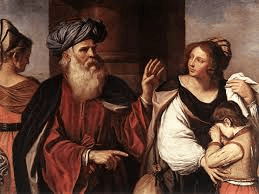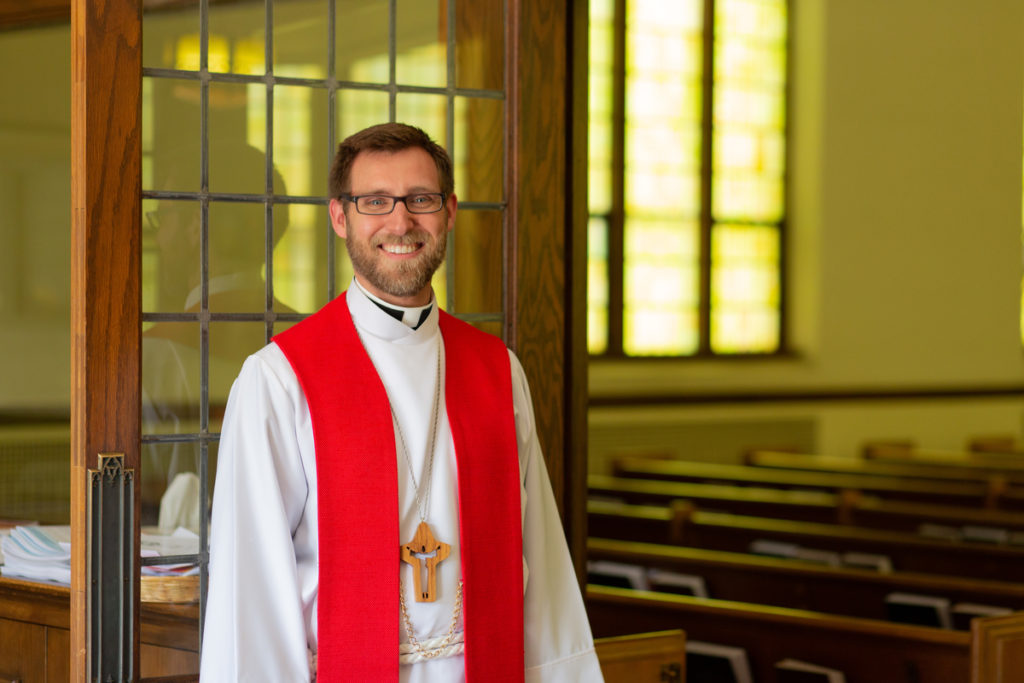A MODEL FATHER
Devotional for Fathers’ Day 2018 based upon Genesis 21: 8-21
I am writing the devotional for this week for a particular group of people, though everyone else is welcome to read it. I am writing to those whose fathers were not ideal fathers. They were not everything they should have been as fathers. Some of these fathers are still alive, so there still might be a chance for their children to work on that all important relationship. Some fathers are gone, so their children can no longer make that relationship better, but they can still work on making their own lives better if they can find peace in their pain and a healing of their memories.
The hard, cold fact is that many fathers are not ideal, model fathers. For example, Abraham was not an ideal, model father.
Now that may kind of surprise you because we think of Abraham as a great man of faith. As the great father of both the Hebrew nation and the Arab people. But Abraham, in his relationship with his older son Ishmael, was far from being a model father.
What great joy Abraham must have felt when he finally was able to have a son by his wife, Sarah. It was a miracle – a gift from God. Both Abraham and Sarah were in their nineties. They named their son Isaac, which means “laughter,” because, by giving them a son, God had given them their laughter back.
When Isaac was three years old, Abraham threw a big party. But in the midst of all the celebrating, Abraham’s wife, Sarah, saw something that made her very upset. She saw Isaac playing with his half-brother, Ishmael.
Now Ishmael also was Abraham’s son. But Ishmael’s mother was a slave woman by the name of Hagar. When God seemed slow to act – at least slow according to Abraham’s timetable – in fulfilling His promise to make Abraham the father of a great nation, Abraham decided that he needed to help God out, so he took matters into his own hands and had a son by the slave woman, Hagar. After the birth of Ishmael, Sarah and Hagar did not get along at all. There was deep resentment and bitterness on Sarah’s part, so at the family celebration, when she saw Ishmael playing with Isaac, she flew into a rage. She told her husband, Abraham, to get rid of that woman and her son. She did not even call them by name. She was so eaten up with jealousy that she wanted Hagar and Ishmael out of her life forever.
Abraham must have lacked either the guts or the know-how to intervene and solve the problem between the mothers of his two children. I’ve seen it happen many times. Some of the worst of tensions erupt at what should be the happiest of family gatherings. In the midst of what should have been a joyous occasion, Sarah became so upset just because she saw Ishmael playing with her young son, Isaac. There is no indication that Ishmael was in any way being mean or abusive towards his younger half-brother. It just says that they were playing together at a family celebration.
Sarah wanted action, and she wanted it now. How sad. How sad for Sarah – for allowing herself to become so consumed with jealousy and anger. How sad for Hagar – to be cast out and now not have someone to provide for her. How sad for Isaac – to no longer be able to have a relationship with his half-brother. But especially how sad for Ishmael. To have a father who rejected him, cast him out, cut him off, sent him away.
I am sure that Abraham loved Ishmael deeply. I am certain that he was greatly distressed over the thought of having to send him away. It was during this time of great confusion and pain that God spoke once again to Abraham. (Thank you, Lord, for speaking to us in our times of greatest confusion and pain.) God said to Abraham, “Do not be distressed because of the boy and because of the slave woman. I will make a nation of him also, because he is your son.” And so, in what is one of the saddest scenes in the entire Bible, Abraham gives in to Sarah and sends Hagar and Ishmael away. He casts them out into the desert with only a skin filled with water and a little bit of bread. How long did Abraham think that they would be able to survive with so little food and water?
I live in the Phoenix area. Day time temperatures are now consistently over 100 degrees. Every summer we hear and read stories of people who go hiking in the desert with not enough water. They do not survive. How long did Abraham think Hagar and Ishmael were going to be able to survive?
When their scanty provisions were gone, Hagar did the best thing she could. She found some shade and left her son there. Then she sat down quite a ways away, looking in the opposite direction. She cried out to anyone who might hear her, “Do not let me look on the death of my child.” Then she sat down and wept.
God heard the cry of the child, so an angel of God called to Hagar and said, “Do not be afraid. Lift up your son and hold him fast, for I will make a great nation of him.” Then God showed her a well where she and her son could draw water. They were not going to die in the desert. God would be with them. Ishmael would grow to become “an expert with the bow.” His mother would find a wife for him. God gave great promises to a homeless woman, and God always keeps His promises. They would not be alone. Even though they had been cast out by a very non-ideal earthly father, they still had a perfect, loving, model Heavenly Father who would look out for them.
And that is good news for all of us. That no matter how well or how badly our own earthly fathers may have fulfilled the role of father, and whether or not we still have a chance to make that all important relationship better, still each one of us – like Ishmael – has a perfect, ideal, loving, model Heavenly Father.
And so, you see, the model, ideal father in our Bible story is not Abraham. In some ways Abraham was a very bad father. No, in this story, the model, ideal Father is God. And God wants to be your model, ideal Father. Earthly fathers may let us down, as Abraham let Ishmael down. But our Heavenly Father will never let us down.
And so, on this upcoming Fathers’ Day, let us give thanks for our earthly fathers, who did for us the very best they could in loving us and nurturing us, but who also had their own very real life issues, hurts, and needs to deal with.
But even more, let us give thanks that we, like Ishmael, have a loving, ideal, model Heavenly Father, who will always love us. Who will always take care of us. Even when we are in the desert times of our lives, He will never forsake us, but will always be there for us.
Dennis D. Nelson
President of the Board and Director of Lutheran CORE



















